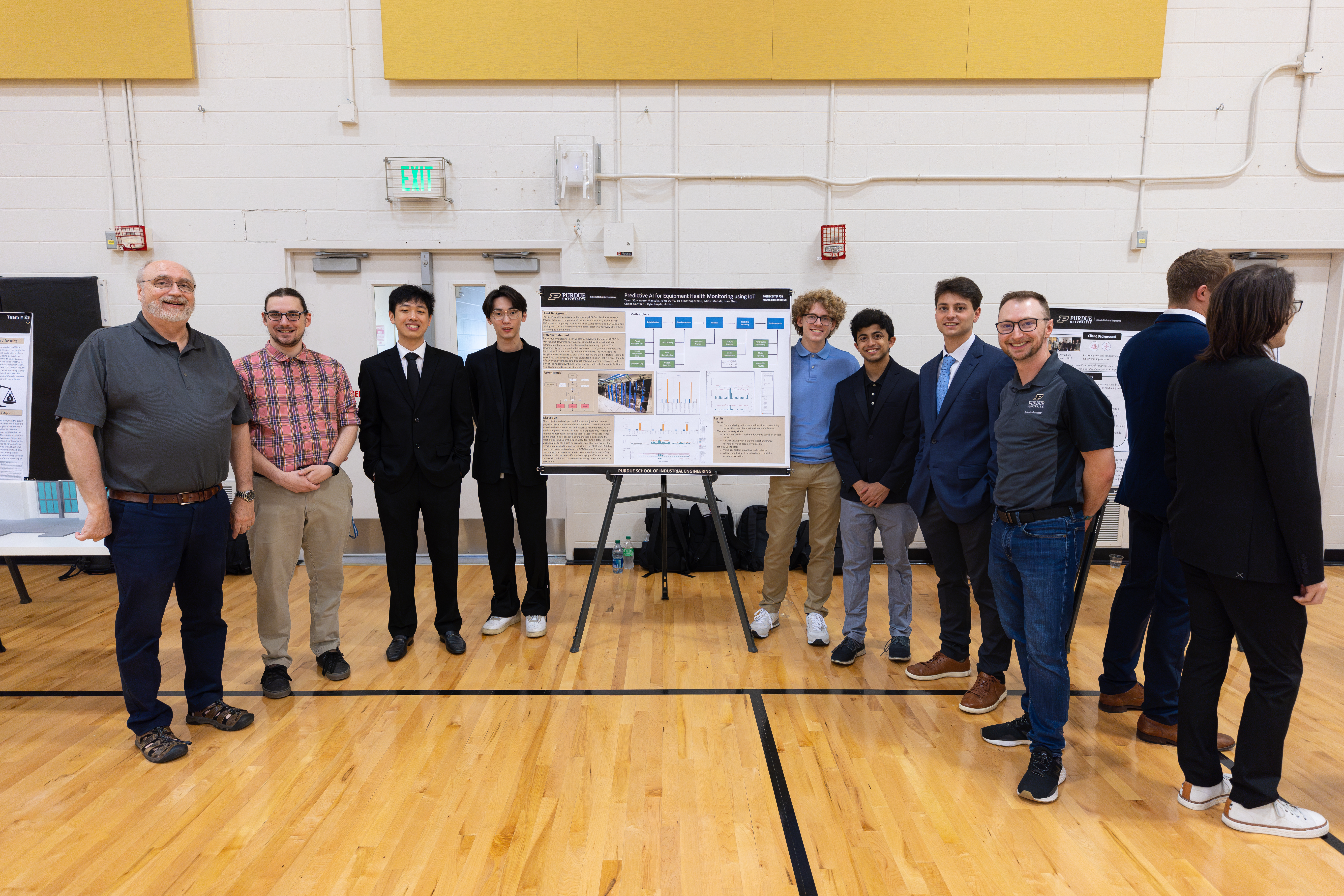Industrial engineering students analyze RCAC cluster data for senior capstone project
For their senior capstone course IE431, a group of recent industrial engineering graduates worked with RCAC staffers to analyze data from RCAC systems and build an interactive dashboard aimed at reducing system downtime.
Working with Kyle Purple, RCAC’s director of integrated cyberinfrastructure, and Ashish, senior research data scientist, the students, Naphatsakorn Simasathapornkul, John Duffy, Mihir Mahale, Avery Mantyla, and Hao Zhuo, all recent graduates in industrial engineering, developed equipment monitoring techniques to reduce downtime for RCAC clusters and other systems.

System downtime disrupts the productivity of faculty and researchers, and leads to inefficient and costly maintenance efforts. RCAC was looking for a way to proactively identify and predict factors leading to node failures, thus preventing downtime before it happens.
The students used several machine learning models to process and analyze large volumes of data and chose the model that best predicted the node’s downtimes. They then created an interactive, visual dashboard that facilitates data-driven operational decision-making and provides customizable views for identifying trends and patterns in the data.
Beyond financial costs, the benefits of being able to better predict and avoid downtime include enhanced research capabilities, reinvestment opportunities and boosting Purdue’s reputation by offering faculty better computational resources.
Along the way, the students got to go behind the scenes and see the inner workings of how RCAC manages advanced computing resources, including powerful supercomputers and large data storage systems, for a campus of tens of thousands of faculty, students and staff.
“When we first had a tour of the data center, it was our first time seeing a supercomputer and it really blew my mind to see how these nodes connect together to provide massive computing power, “ says Simasathapornkul, who says that he enthusiastically recommends working at RCAC to other students, even those who don’t have a background in computer science or IT.
“We knew that Purdue had supercomputers but we didn’t know where they were or how they worked, and to have this experience getting hands-on experience with them as an undergraduate was invaluable.”
The students presented their work to the RCAC team before sharing with a wider audience at the industrial engineering end-of-semester event, where more than 35 IE431 projects were showcased.
RCAC has a robust student employment program, CI-XP (Cyber Infrastructure-eXperience) with opportunities for student workers in the data center, the Envision Center, the Scientific Solutions Group and the Anvil REU programs. The purpose of the CI-XP program is to provide work opportunities and real workplace experience that enhance the student’s education through the development of professional skills, responsibilities, habits, attitudes, self-confidence and self-development. RCAC staff serve as mentors to the students.
“We’re always looking for ways to be more proactive at engaging students in our operations,” says Purple. “Working with this group of IE students to aid in the efforts to reduce system downtime was a tremendous opportunity, and one I hope to continue in the future.”
“The work they put in, leveraging machine learning models and dashboards, laid a foundation we can build upon in the future,” adds Purple. “I’m impressed with what they were able to do in such a short period of time.” To learn more about student employment at RCAC and to see what positions are currently available, please visit https://www.rcac.purdue.edu/ci-xp.
